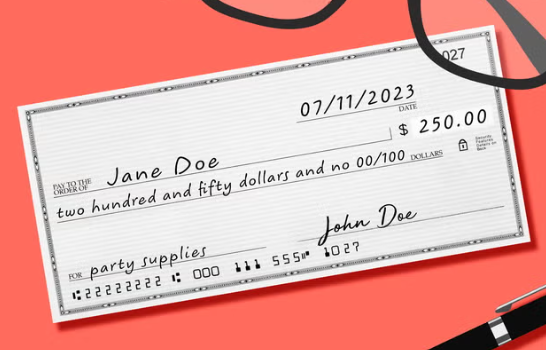
As the summer winds down, it can feel like financial worries are a distant concern. With vacations, outdoor activities, and the slower pace of life, it’s easy to push money matters to the back burner. But surprisingly, this is the perfect time to take a close look at your finances. By conducting a financial check-in during the summer, you can avoid the dreaded debt hangover that often comes after the holiday season. Here are some effective tips for planning ahead and getting your finances in order before the busy end-of-year spending kicks in.
Set Yourself Up for Success
For many, reviewing finances can be a stressful task. To make the process smoother, it’s important to prepare everything you need before diving in. Start by gathering the key documents you’ll need, such as:
- Your budget (if you have one)
- Credit card statements
- Bank statements
- Household bills
Also, make sure you have the tools you’ll need to track and organize your finances, such as a pen, paper, a laptop or tablet, chargers, a notebook, and a calculator. Whether you prefer paper or digital records, having everything in one place will minimize distractions and ensure you stay focused.
Pick the Right Time for Your Financial Check-In
When planning your financial check-in, choose a time when you’re likely to be calm and alert. If you’re an early riser, mornings might be the best time to dive into your finances. Alternatively, if evenings are more suitable for you, take advantage of the quiet after a busy day. Avoid scheduling this task during particularly hectic moments, as it may lead to frustration or mistakes. By setting aside dedicated time when you’re relaxed, you’ll be able to tackle your finances more effectively.
Start by Understanding Your Current Debt
The first step in a financial check-in is to assess your debt. This can be the hardest part, especially if you’ve been struggling with payments. While it’s tempting to ignore the numbers, facing them head-on will help you gain control over your situation. Review your bank and credit card statements carefully and check for any unfamiliar charges. Once you have a clear picture of your debt, calculate the total amount you owe, the due dates for payments, and the interest rates associated with each debt.
Create or Adjust Your Budget to Include Debt Repayment
A summer financial check-in is an excellent opportunity to assess your current budget and make adjustments. Create or modify your budget to ensure that debt repayment is prioritized. Start by listing your fixed expenses, such as rent or mortgage, bills, transportation, and groceries. Then, calculate how much money is left over for paying down debt and discretionary spending.
For example, if you have $500 left after covering your essentials, consider directing that toward your debt repayments. Automating your bill payments is also a good strategy to avoid late fees and penalties. Keeping track of your expenses and automating payments will make managing your debt more manageable.
Set Financial Goals for the Coming Year
Instead of waiting for January to set financial goals, why not get a head start in the summer? Take time to reflect on your financial objectives for the upcoming year, such as paying off debt, saving for retirement, or building an emergency fund. The earlier you plan, the more prepared you’ll be when the new year arrives.
Look over your income and spending patterns, then decide when you can realistically pay off your debts and start saving for upcoming expenses, like the holiday season. Consider setting up “no-spend” weekends or weeks to give your budget an extra boost. Making small adjustments like these can make a big difference over time.
Cut Back on Small Expenses for Big Savings
Often, small, seemingly insignificant expenses add up without us realizing it. Start by cutting back on things like subscriptions, takeout, or impulse buys. For example, instead of buying lunch every day, pack your meals and make coffee at home. By tracking the money you save, you can either put it into a savings account or use it to pay down debt. Seeing the savings add up will help motivate you to continue making mindful spending choices.
Explore Ways to Pay Off Debt More Quickly
Summer is also a great time to look for options that can help you pay off your debt faster. One option is to transfer your credit card debt to a new card with a zero-interest promotional period. If you choose this route, be sure to read the fine print to avoid falling into a trap. If you’re not disciplined, this could lead to more debt. Additionally, consider canceling old cards or keeping them out of sight to avoid temptation.
Plan Ahead for Holiday Expenses
If you’re determined to avoid the holiday debt trap, start planning your holiday budget now. Reflect on last year’s spending and identify where you overspent. By analyzing your past spending patterns, you can make more conscious choices about where to splurge and where to cut back this year. Shopping for holiday items outside of the peak season can also save you money, as many holiday-related items are much cheaper when bought off-season.
Start Saving for Holiday Spending Now
Start putting money aside for the holidays by creating a savings plan. Even small contributions can add up over time, giving you a financial cushion for holiday expenses. With a budget and plan in place, you can enjoy the holidays without the stress of overspending and accumulating debt.
Final Thoughts
Taking the time to check in with your finances during the summer can set you up for a successful financial future. By assessing your debt, creating a budget, and setting goals early, you can avoid the common pitfalls that lead to holiday debt. With a bit of preparation and mindful spending, you can enjoy the rest of the year without worrying about the financial stress that typically follows the holiday season.









